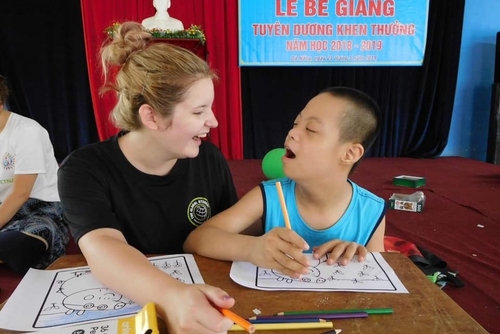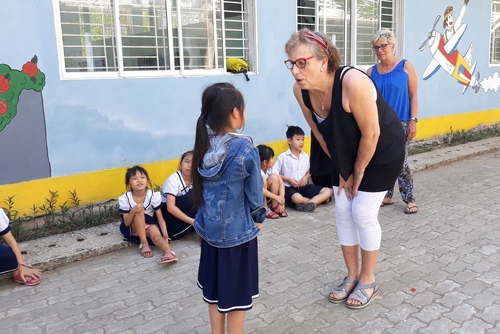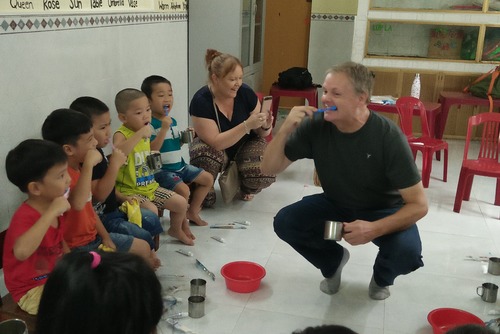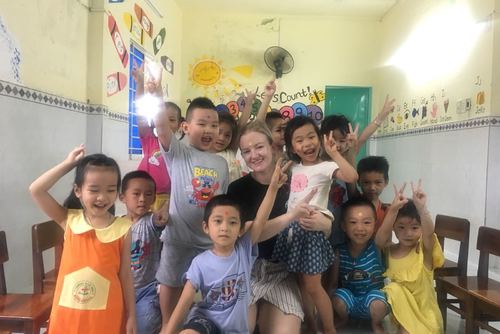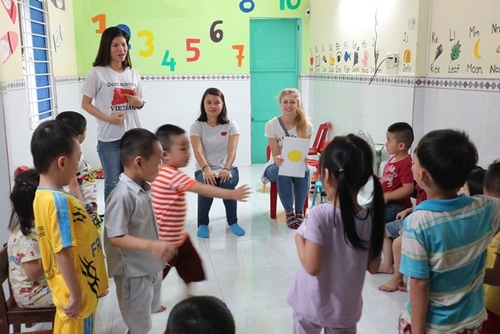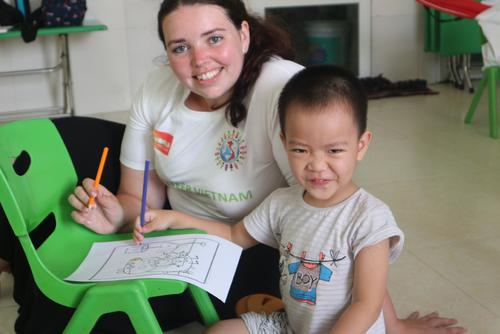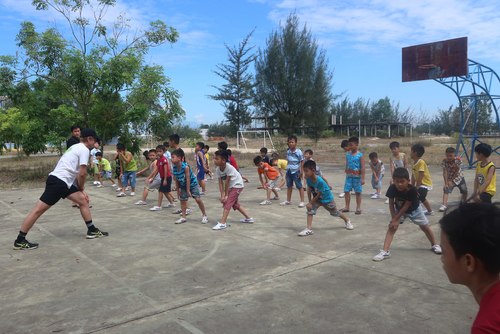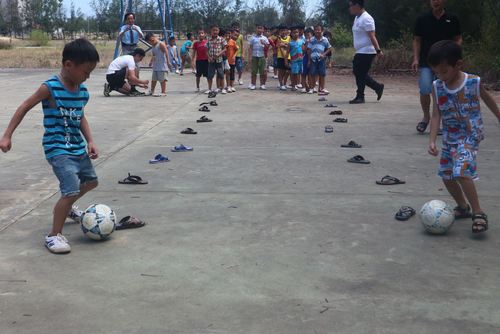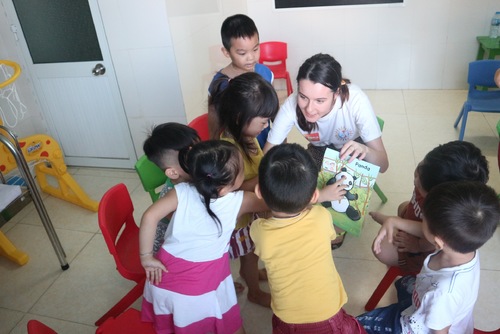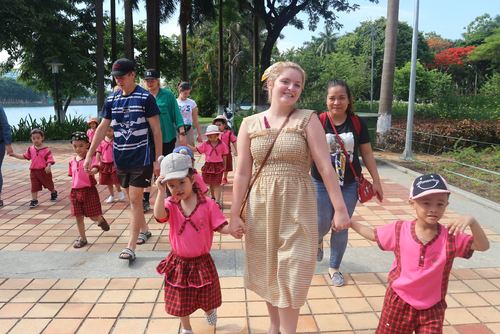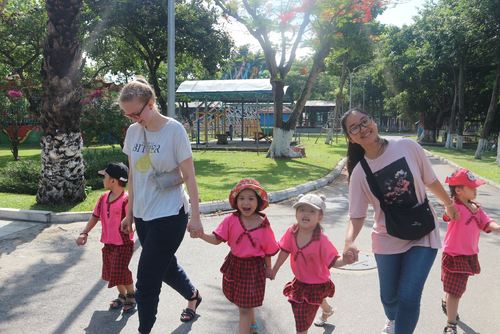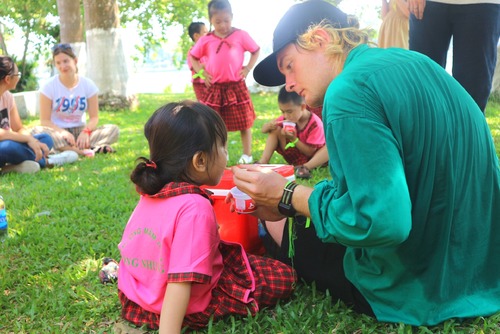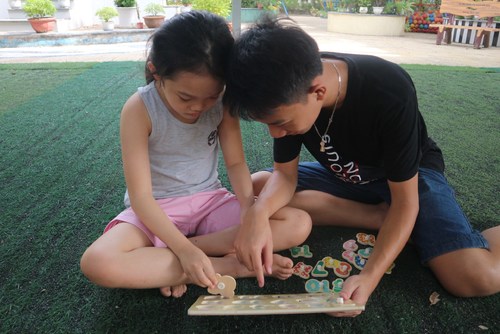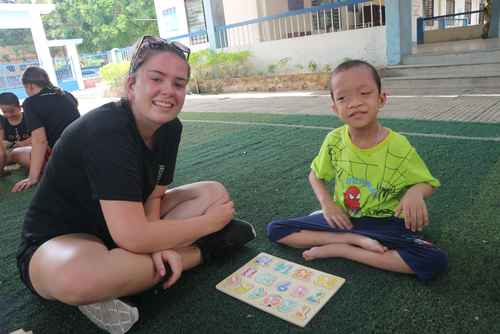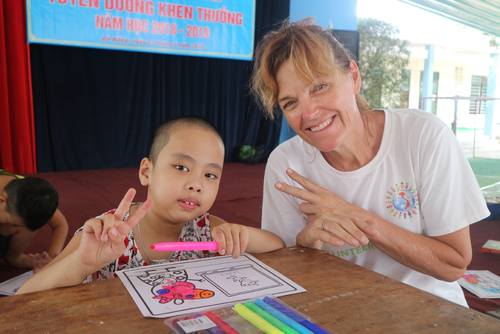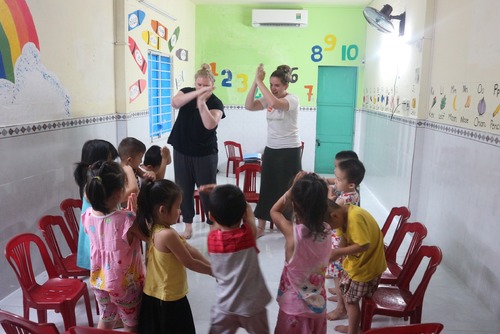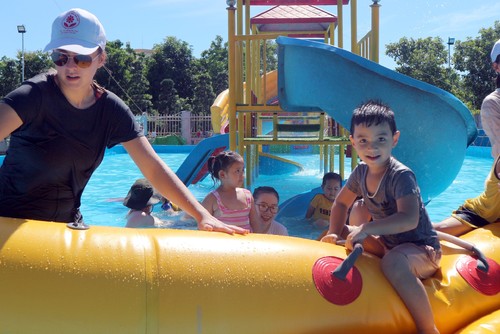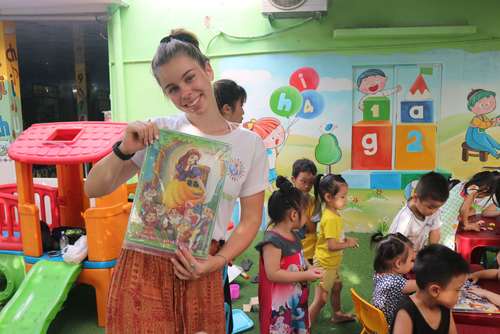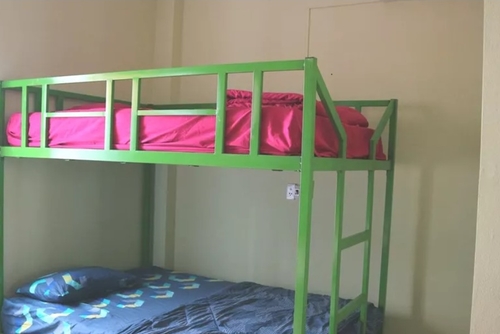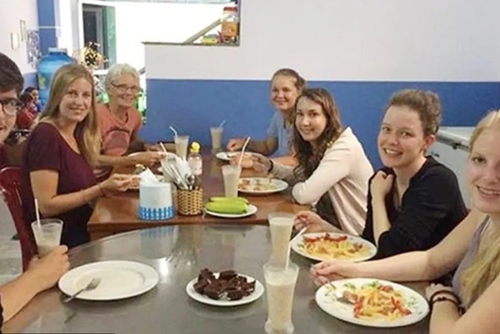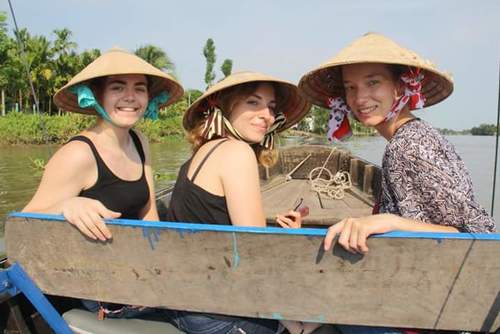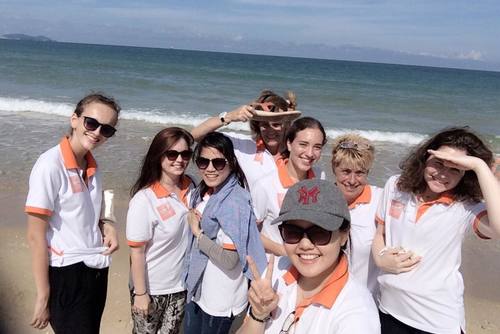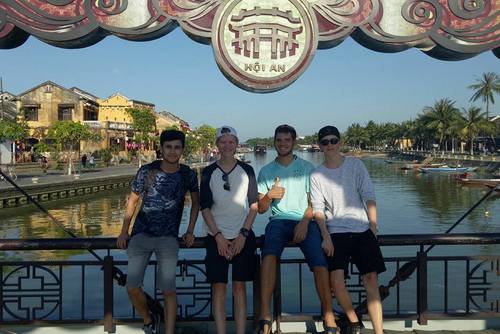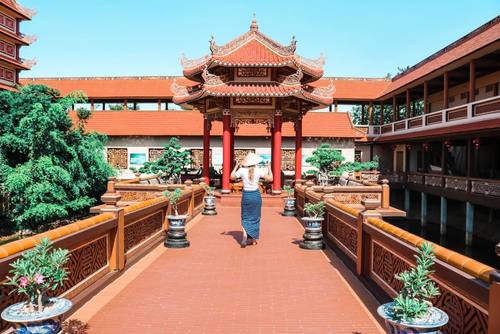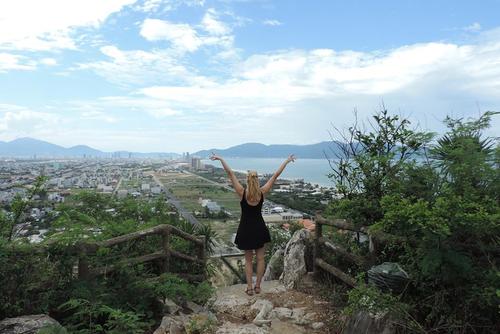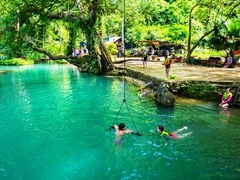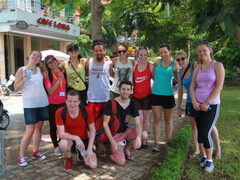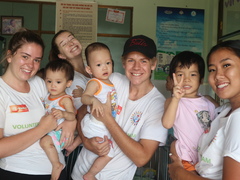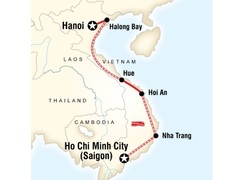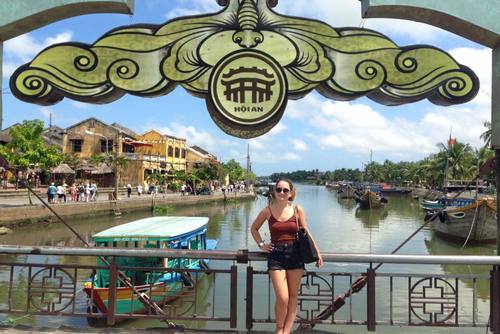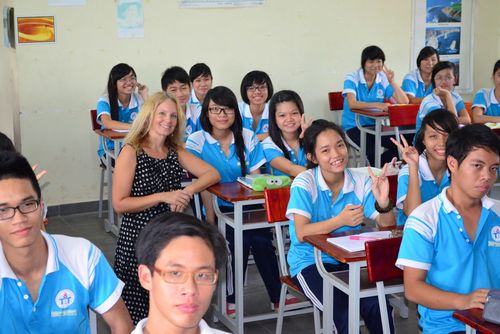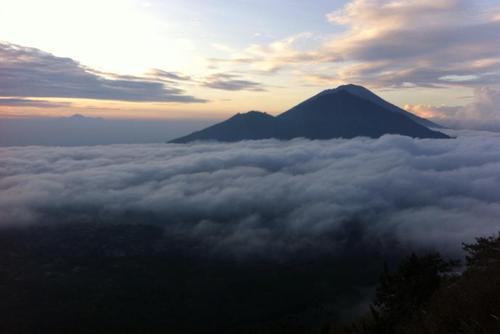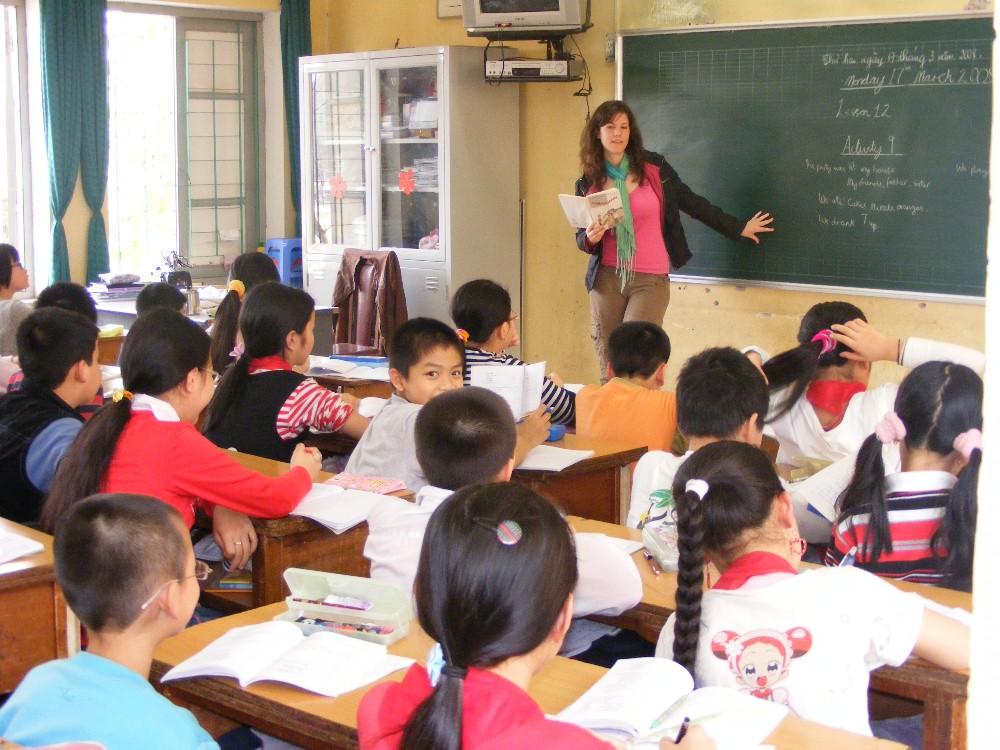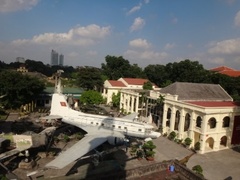Central Region of Vietnam is considered  as the poorest area in Vietnam. There is a serious limitation of English teachers in Da Nang. Many local teachers find it extremely difficult to teach their students how to make a conversation in English as English is not their mother language. In addition, at some kindergartens, there are no English teachers.
This program offers the children and teachers the chance to learn basic English and  conversational English skills that may enable them to create a better futures for themselves when working at a work market. The ability to communicate in English brings great benefits  for them to enter in a foreign owned companies and tourism. 
You will work with our team to prepare lesson plans the day or morning before the class. Our  teaching staff is very organised and have many pre-planned lesson plans. However, they are always open to suggestions and new ideas. The volunteer will play the main teaching role in the class, while our staff will provide the assistance such as translating and keeping the class in order.
There are two kindergarten schools named "Hong Nhung" and "Hoa Sua" for over 200 young children aged from 2 to 5 years old.  They  are from disadvantaged families in Danang. They come from poor families where their parents are laborers in construction site or work in local factories. Many children live with one parent as they lost one parent or their parents are divorced.
The schools are very poor and do not have any English teachers. It's very important for children to have a good education which can help them escape from poverty. English is an essential language for a developing country like Vietnam. Volunteers will be guided by our staff working in an English teaching program called " English for Beginners". You'll go to these schools and teach two kindergarten classes. 
There are 3 phases of a lesson: warm-up, teach the new lesson and games, songs or coloring. Sometimes art or outdoor activities are planned for the end of the class.By playing games with the children you also build their confidence. It also encourages the children to use English in an informal way, and with the younger children it gives them exposure to the language at an early age. 
Our staff provides a range of administrative support in the classroom, such as preparing classroom resources, learning activities,....They are also a part of extra-curricular activities including revision sessions, group activities, outing trips, to ensure that any pupils we support can  engage in learning and stay on task during the lesson or activity.
 
Typical Day
Volunteers work from Monday to Friday morning and have a long weekend from Friday afternoon to explore Da Nang city and the nearby areas.
Here is the schedule for a typical day:
- 7:30: Breakfast, coffee and some work meeting
- 8:00: Leaving for work
- 11:30: Back to the Green House for lunch
- 13:45: Leaving for work
- 17:00: Back to the Green House for dinner
- Evenings can be free, or we may arrange some activities.
 
Free-time Activities
During the weekday, volunteers will have some free time in the evening and this can be filled up with the following activities: 
- Hanging out at cafes near the Green House to see the local way of life
- Visiting the city centerÔÇÖs many beautiful sites, including the Dragon Bridge which breathes fire on weekend nights
- Shopping at the local night market & sampling Vietnamese foods 
- Having movie nights with other volunteers in the Green House living room
- Planning lessons and activities for the next days with volunteers and staff 
On the weekends: 
Volunteers love to explore the many attractions in Da Nang such as: the Marble Mountains, Lady Buddha Temple, Han Market, Dragon Bridge, Ba Na Hills and the many world-renowned beaches. 
Make the short drive down to Hoi An, a preserved port town recognized as a UNESCO World Heritage site. Hoi An is perfect for a relaxing weekend getaway where volunteers get clothes tailor-made in the day and explore the lantern-filled city at night.
Take the 2-hour train ride up to Hue, another UNESCO world heritage site and former imperial city. The train ride takes you along the coast and through the mountains of the Hai Van Pass.


